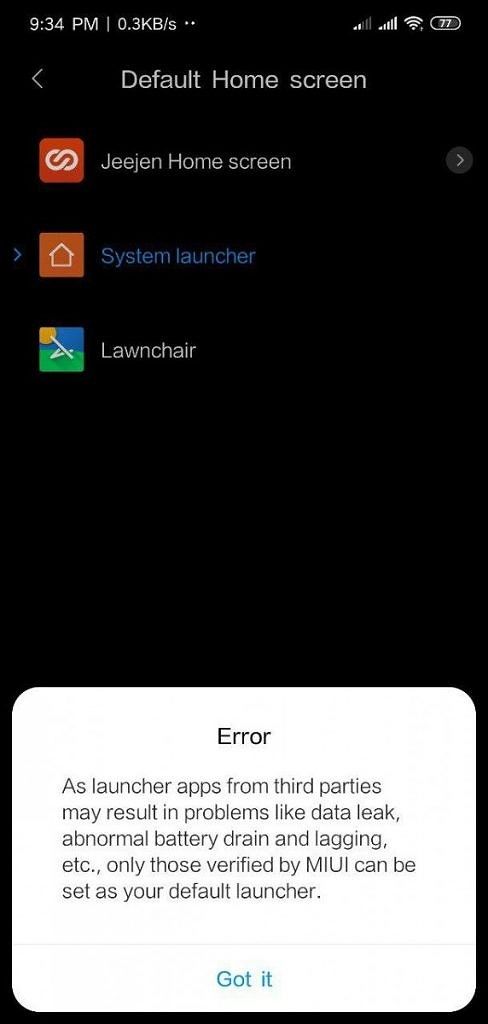Chinese consumers often get the short end of the stick when it comes to Android and the Android experience. For many consumers in the region, buying phones is only viable through a reseller, who end up exploiting the situation by installing lookalike launchers with adware onto the devices they sell. Consumers are then left wondering about the source of the adware, and they go on to clog the customer care machinery with complaints against these adware. In light of such situations, Huawei took the decision to block third-party launchers on Chinese EMUI 9 versions, and now Xiaomi is doing the same on its China ROMs.
This change was first spotted in the firmware dumps of the Mi 9's MIUI 10 China 9.3.18 build. Strings present inside the "Security Center" APK suggested that Xiaomi would be blocking "unverified" third party launchers from being set as the default launcher on the device:
<string name="third_desktop_dialog_<wbr />title">Error</string>
<string name="third_desktop_dialog_<wbr />content">As launcher apps from third parties may result in problems like data leak, abnormal battery drain and lagging, etc., only those verified by MIUI can be set as your default launcher.</string>
<string name="third_desktop_dialog_ok"<wbr />>Got it</string>
These strings then continued to make an appearance in firmwares released after March 18, 2019. Finally, with MIUI 10 China 9.4.1, i.e. the build released on April 1, 2019 for the Xiaomi Mi 9, users were prevented from setting other launchers as their default homescreen launcher.
We reached out to Xiaomi to get clarity on the situation and get a statement:
Third-party launchers are allowed on China ROM-based Xiaomi smartphones after a verification process. Any launcher that is approved to be listed on the Mi App Store (our app marketplace in Chinese Mainland) will automatically be verified, and can be used on MIUI smartphones running the China ROM. There are no plans to implement a verification process for launchers on the global (including India) firmware.
As per the statements from Xiaomi's spokesperson, Xiaomi is taking a relatively softer stand than what Huawei took. MIUI users in China and on China ROMs are not completely barred from setting other launchers as their default launcher. They can set a third party launcher as their device default, as long as the launcher is "verified" by Xiaomi. This verification, we presume based on the context, would be to check if the launcher causes abnormal device behavior. Launchers that make it through the verification process can be set as the default launcher on the device. Launchers that are approved to be listed on the Mi App Store will automatically be verified, too, so there should be a healthy option of alternate launchers to choose from.
We also clarified with the spokesperson on whether the launcher-block will be making its way to MIUI's Global firmwares, and the answer is no. MIUI 10 Global firmwares remain unaffected by this change, and users can continue setting third-party launchers as the default launcher on the device without any hindrance. The block is not coming to firmwares outside of China, and by extension, there is no need for a "verification" process either.
Even with the softer stance, this change does affect Chinese consumers who would want to try out newer launchers which haven't been listed on the Mi App Store. But this collateral damage appears to be in the larger interest of Chinese consumers. Flashing Global ROMs on Chinese devices has also been blocked by Xiaomi for related reasons, so that is out of the picture too. We do not have verified methods of sidestepping this launcher block just yet, but removing the Security app should be enough to do the trick.
What are your thoughts on Xiaomi's decision to block unverified third-party launchers on MIUI China ROMs? Are there alternatives that companies like Xiaomi and Huawei can consider for fighting against lookalike adware from resellers? Let us know your thoughts in the comments below!


